From Ocean Health to Human Health: DeHealth Founders at the UNOC-3 and Blue Economy Forum 2025
Created: 10 Jun, 2025
Updated: 10 Jun, 2025
Read post: 09:03 min read
- Why the Ocean Is a Medical Issue
- UNOC-3: The Largest Ocean Summit in History
- Among the major topics were:
- 🌊 🌍 UNOC-3 Summit in Nice: Who Came and Who Didn’t
- Who Attended:
- ❌ Who Didn’t:
- Mapping Europe’s Ocean Innovation: 40 Posters, One Data Vision
- A Story That Touched Us: Sea Turtle CC32
- BEFF Monaco: Where Capital Meets Ecology
- What DeHealth Showed the World
- In upcoming DeHealth releases, the team will:
- Final Thoughts: A Call to Collaborate
- Quotes from BEFF 2025 (Monaco) and UNOC-3 (Nice):
In June 2025, the French Riviera hosted two of the most significant global gatherings for ocean protection and sustainable development: the Third United Nations Ocean Conference (UNOC-3) in Nice and the Blue Economy & Finance Forum (BEFF) in Monaco. With over 10,000 participants, including 63 heads of state and government, these events marked a historic turning point in global ocean diplomacy. Though DeHealth was not formally part of the official delegations, its founders — Anna Bon and Denys Tsvaig — attended in person to explore the intersection of ocean science, global health, and data infrastructure.
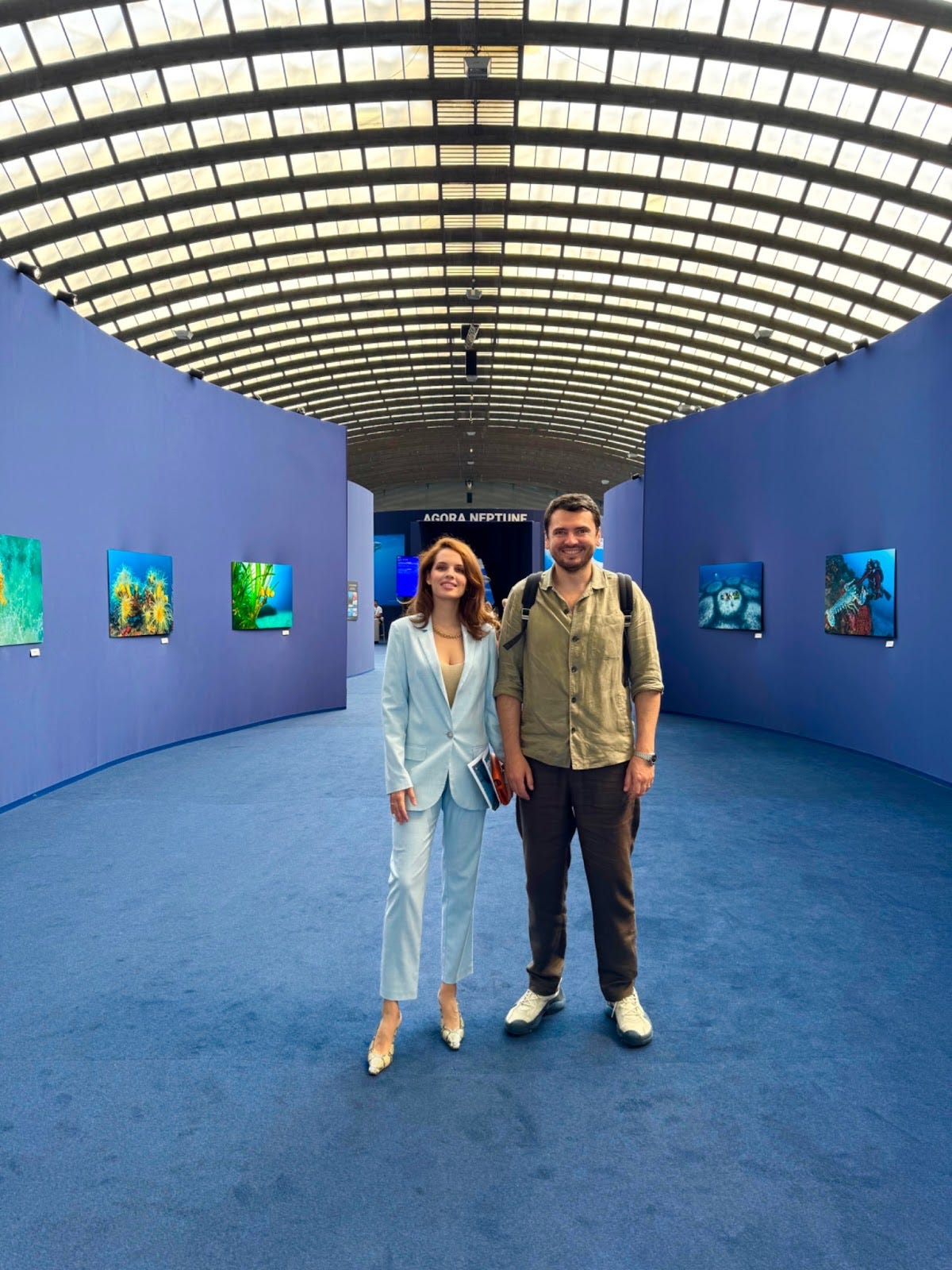
Their presence raised questions with surprising resonance: How can the health of the ocean and the health of humans be treated as one ecosystem? And how can digital health infrastructure be part of a regenerative environmental future?
Why the Ocean Is a Medical Issue
The ocean produces over 50% of the oxygen we breathe and absorbs around 30% of CO₂ emissions. It provides food and jobs for more than 3 billion people. But it’s also under siege — from climate change, plastic pollution, overfishing, and deep-sea mining.
The ocean isn’t just an environmental concern. It’s a medical one.
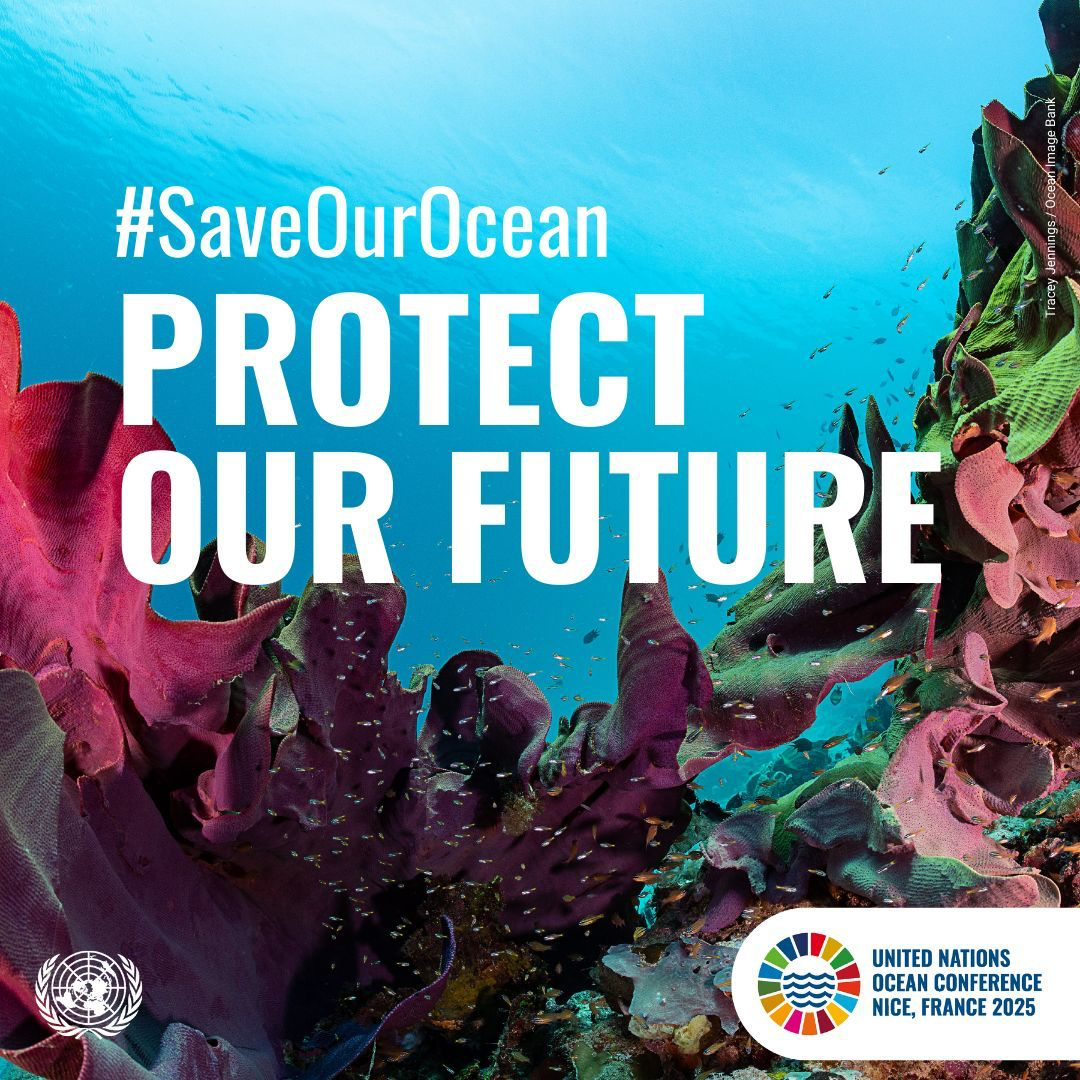
The microplastics found in marine life end up in human lungs, blood, and organs. Ocean warming leads to the proliferation of pathogens, affecting water safety and food supplies. Exposure to polluted marine environments has been linked to respiratory diseases, hormonal disruptions, fertility decline, and mental health deterioration.
Human health is inseparable from our environment. We are not separate from the ecosystems we inhabit. Changes in salinity, temperature, UV radiation, or chemical runoff can influence everything from asthma to autoimmune disease.
This is where DeHealth comes in. The company is building global infrastructure for health sovereignty — empowering individuals to track, understand, and act on their health in relation to the world around them. The AI-powered mobile platform provides a secure digital health ID, personalized analytics, and predictive reporting. The next frontier? Integrating environmental variables directly into preventive health recommendations.
Co-founder Anna Bon put it simply:
“The ocean is like our mother. You don’t harm your mother — you love her, you care for her, you listen to her.”
CEO Denys Tsvaig added:
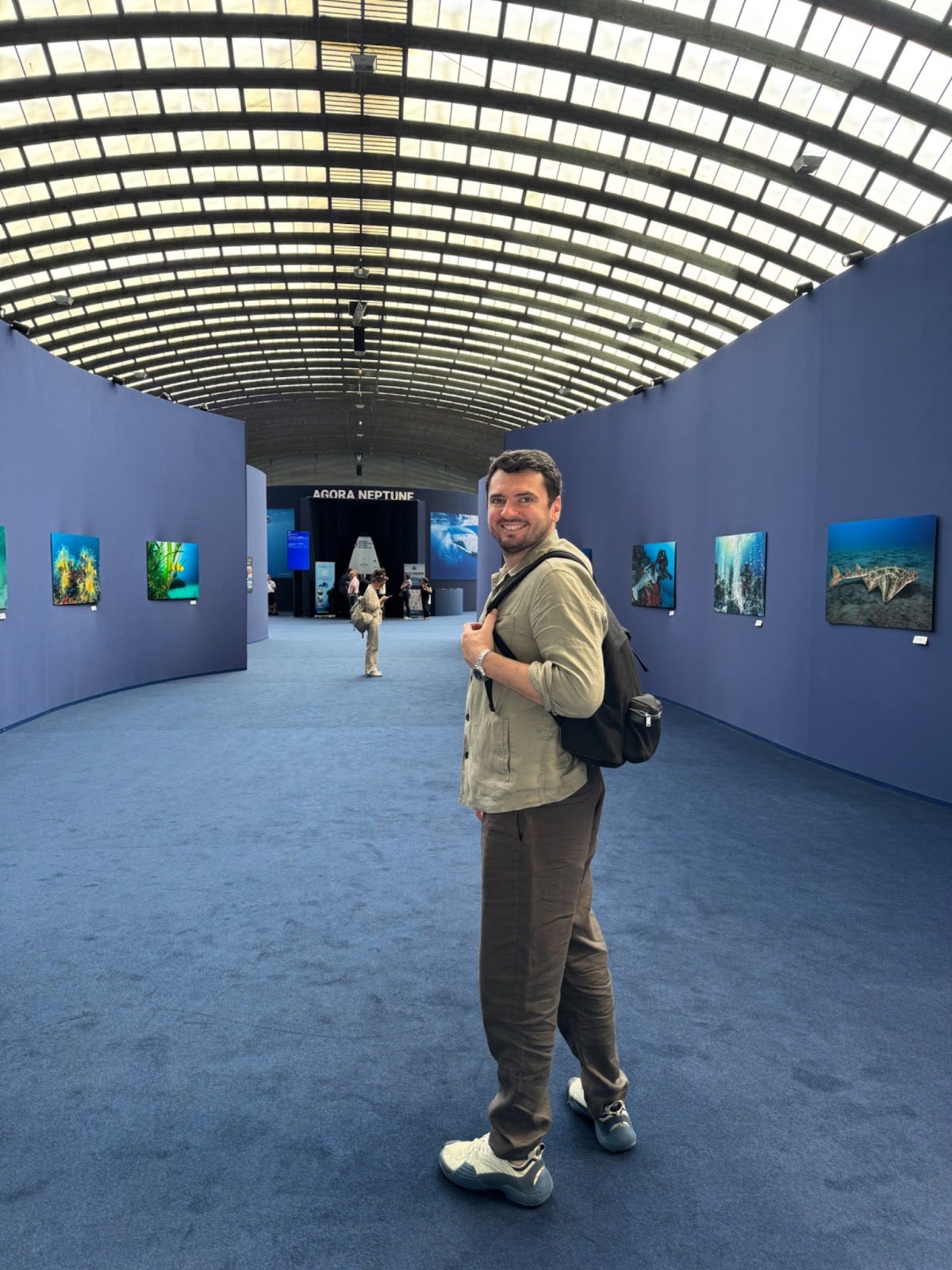
“The real problem is that we know almost nothing about what’s truly happening in the ocean. As a child, I was captivated by underwater documentaries, especially Jacques-Yves Cousteau. I’m proud that today, through DeHealth, I have the chance to give something back to this living organism.”
He recalled a powerful scene from Cousteau’s 1956 film The Silent World, where the Calypso accidentally strikes a sperm whale, causing it to bleed and attract sharks. It was one of the first filmed incidents showing that such ship-animal collisions have been occurring for decades — a poignant reminder that even well-meaning exploration carries a cost.
UNOC-3: The Largest Ocean Summit in History
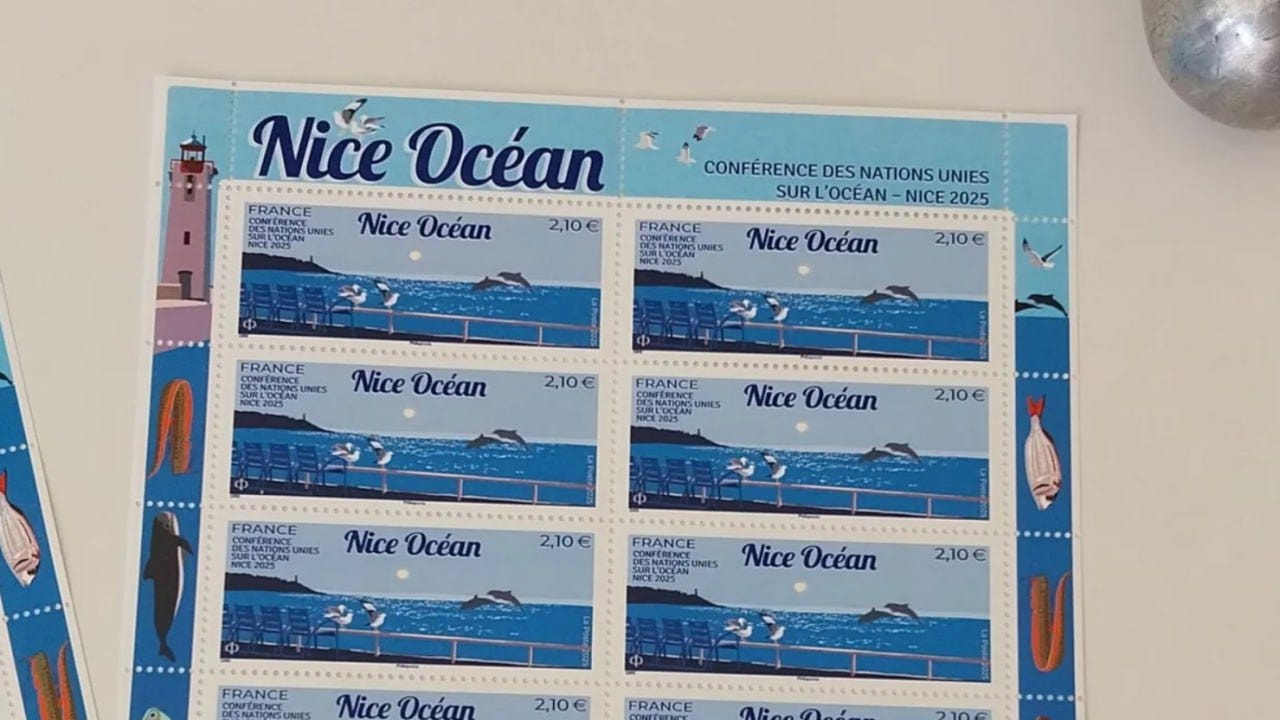
UNOC-3 brought together a diverse and powerful group: Presidents Emmanuel Macron (France), Rodrigo Chaves Robles (Costa Rica), Luiz Inácio Lula da Silva (Brazil), Javier Milei (Argentina), and high-level delegations from over 100 nations.
The European Union was present in full force, with Ursula von der Leyen, Roberta Metsola, and Antonio Costa reaffirming Europe’s commitment to ocean science. Meanwhile, notable absences included the heads of state from the United States, Canada, Germany, and the United Kingdom — a reminder that even in moments of global urgency, political will remains uneven.
“Science must guide our decisions. Finance must support it. And politics must act with courage.”
— Emmanuel Macron, President of France
Among the major topics were:
- The adoption of the “Nice Ocean Action Plan”
- Accelerating marine protected areas to 30% by 2030
- Launching the Digital Twin Ocean initiative
- Scaling up citizen science, especially through sports and community networks
Anna and Denys spent time on the exhibition floor where dozens of science teams presented groundbreaking work: from underwater UAV swarms mapping sea temperature, to AI models predicting plankton behavior and ecosystem shifts. They were particularly inspired by the EU’s 4D biogeochemical Argo initiative and the ILIAD digital ocean twin, which mirror some of the architecture DeHealth uses in health data modeling.
Their approach caught attention. Throughout the forum, several ecological NGOs, ocean scientists, and even government representatives expressed strong interest in DeHealth’s mission and technology — particularly its model of sovereign data ownership, privacy-respecting analytics, and its potential to link public health with ecosystem data in real-time.
🌊 🌍 UNOC-3 Summit in Nice: Who Came and Who Didn’t
The Third UN Ocean Conference (UNOC-3) opened in Nice with a record-breaking international presence: 63 heads of state and government arrived in the capital of the French Riviera. This was almost double the number who attended the previous edition in Lisbon in 2022. However, some notable leaders were missing.
Who Attended:
- 🇫🇷 France: President Emmanuel Macron opened the summit.
- 🇨🇷 Costa Rica (co-host): President Rodrigo Chaves Robles
- 🇧🇷 Brazil: President Luiz Inácio Lula da Silva
- 🇦🇷 Argentina: President Javier Milei
- 🇵🇰 Presidents of Colombia, Paraguay, and Peru
- 🇭🇹 🇧🇮 🇸🇩 🇬🇶 🇲🇶 🇲🇪 🇸🇷 Leaders from Benin, Burundi, CAR, Congo, Guinea-Bissau, Mauritania, Sierra Leone
- 🇻🇳 Vietnam (PM Phạm Minh Chính), Libya (Mohamed Younis Menfi), Iraq (President Rashid)
- 🇪🇺 EU in full: Ursula von der Leyen, Antonio Costa, Roberta Metsola, Kaja Kallas
- 🇨🇳 China: Four vice presidents attended
❌ Who Didn’t:
- 🇺🇸 USA: President Donald Trump was absent
- 🇨🇦 Canada, 🇦🇺 Australia: only delegate-level attendance
- 🇮🇹 Italy: PM Giorgia Meloni absent
- 🇩🇪 Germany: Chancellor Friedrich Merz did not attend
- 🇬🇧 UK: PM Keir Starmer skipped the meeting
Despite some gaps in participation, the Nice summit became one of the largest and most ambitious diplomatic gatherings ever held for ocean protection. What matters now is whether these meetings will translate into action.
Mapping Europe’s Ocean Innovation: 40 Posters, One Data Vision
During their time at UNOC-3, the DeHealth team documented over 40 scientific poster sessions and data projects presented across the One Ocean Science Congress and exhibition pavilions. These projects span across EU-funded initiatives, academic labs, research observatories, and citizen-science collaborations.
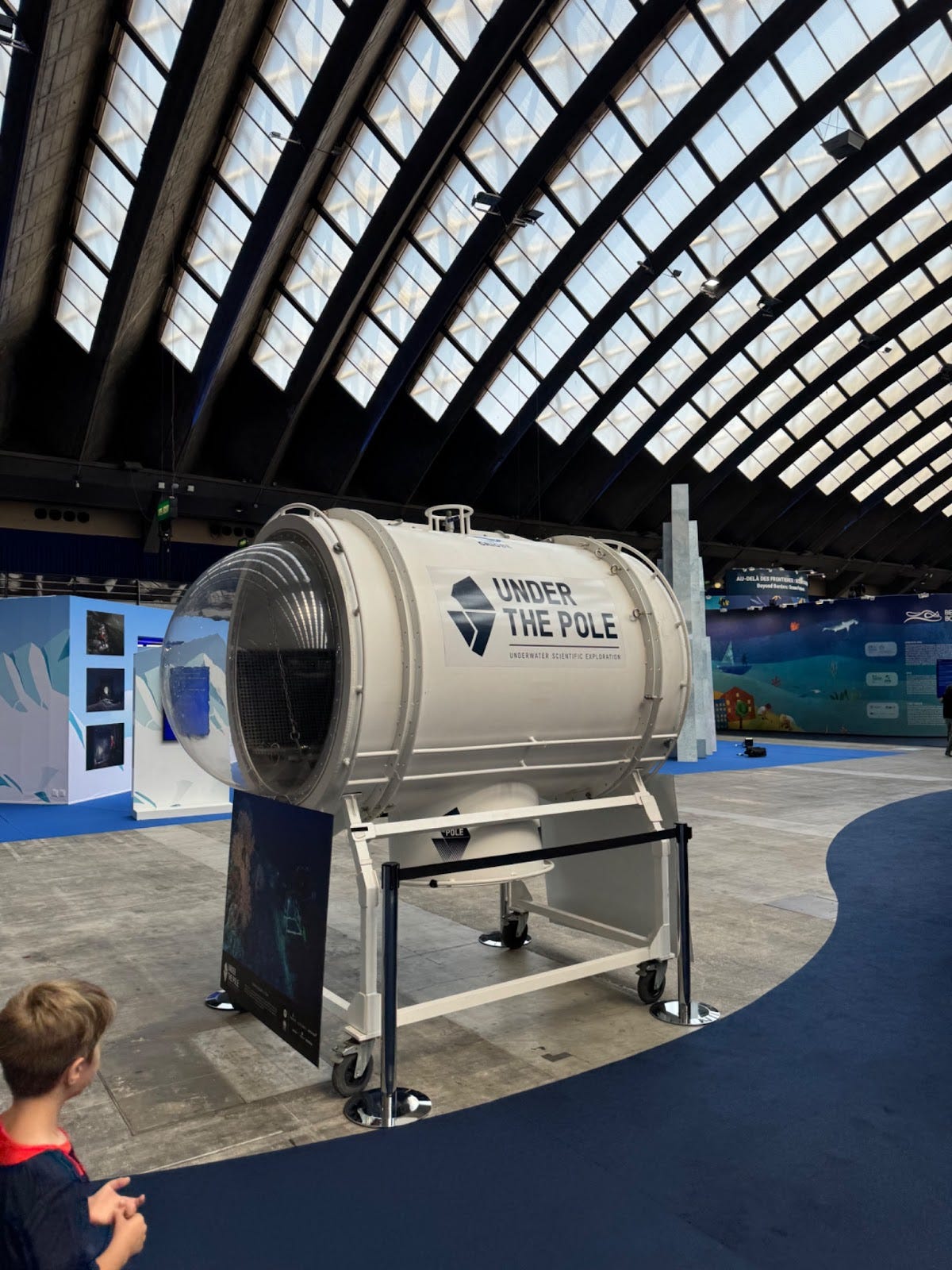
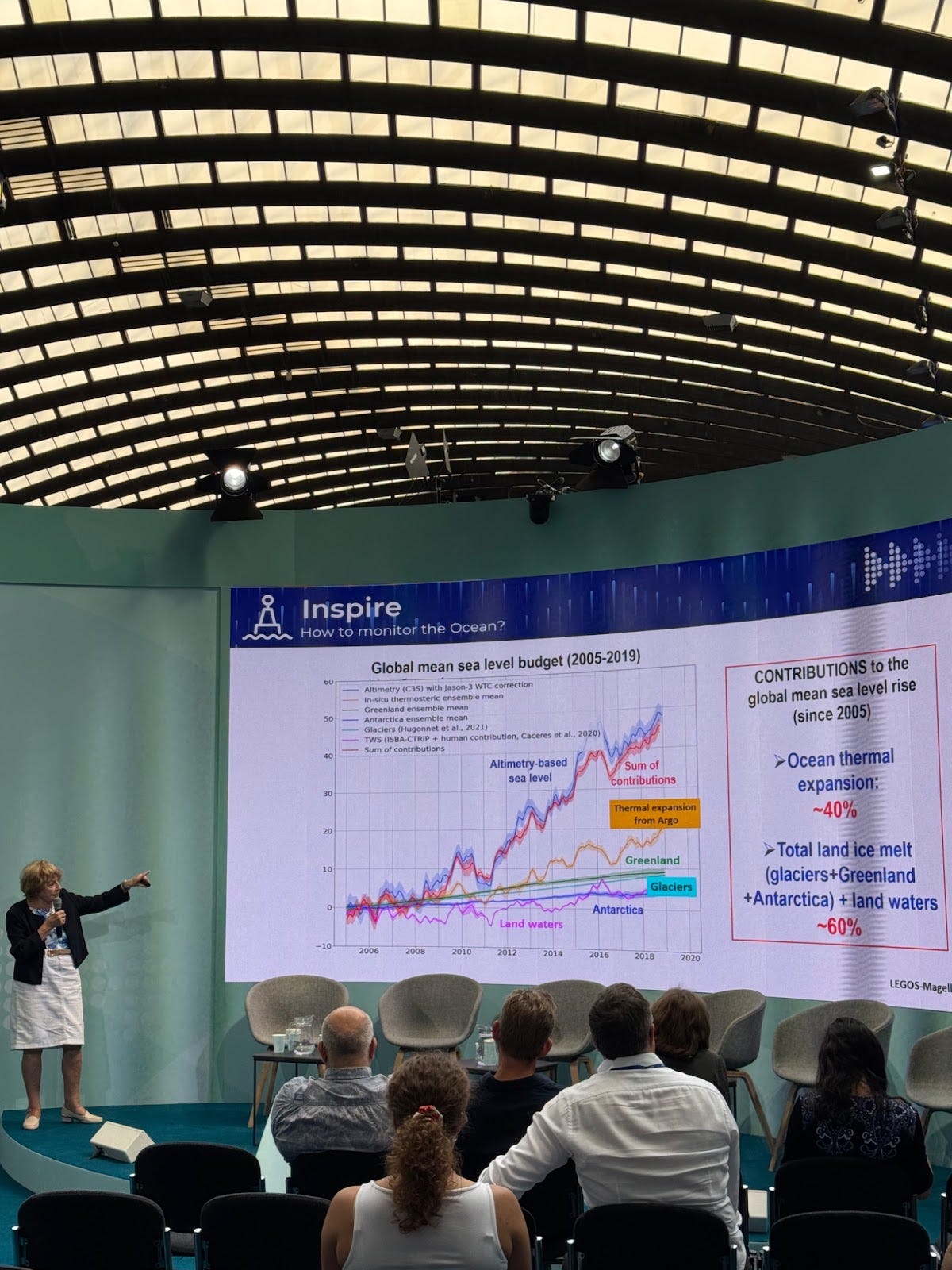
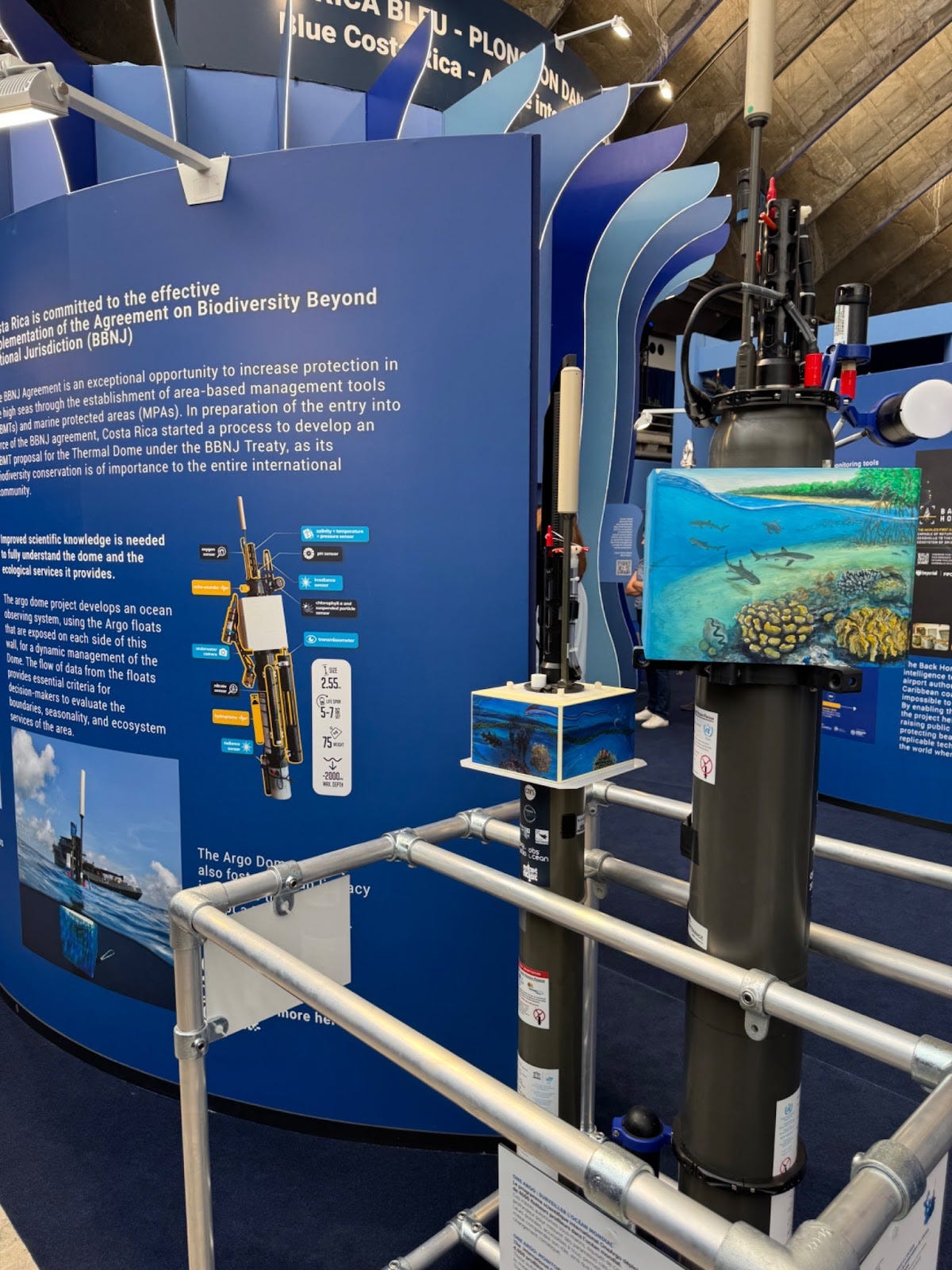
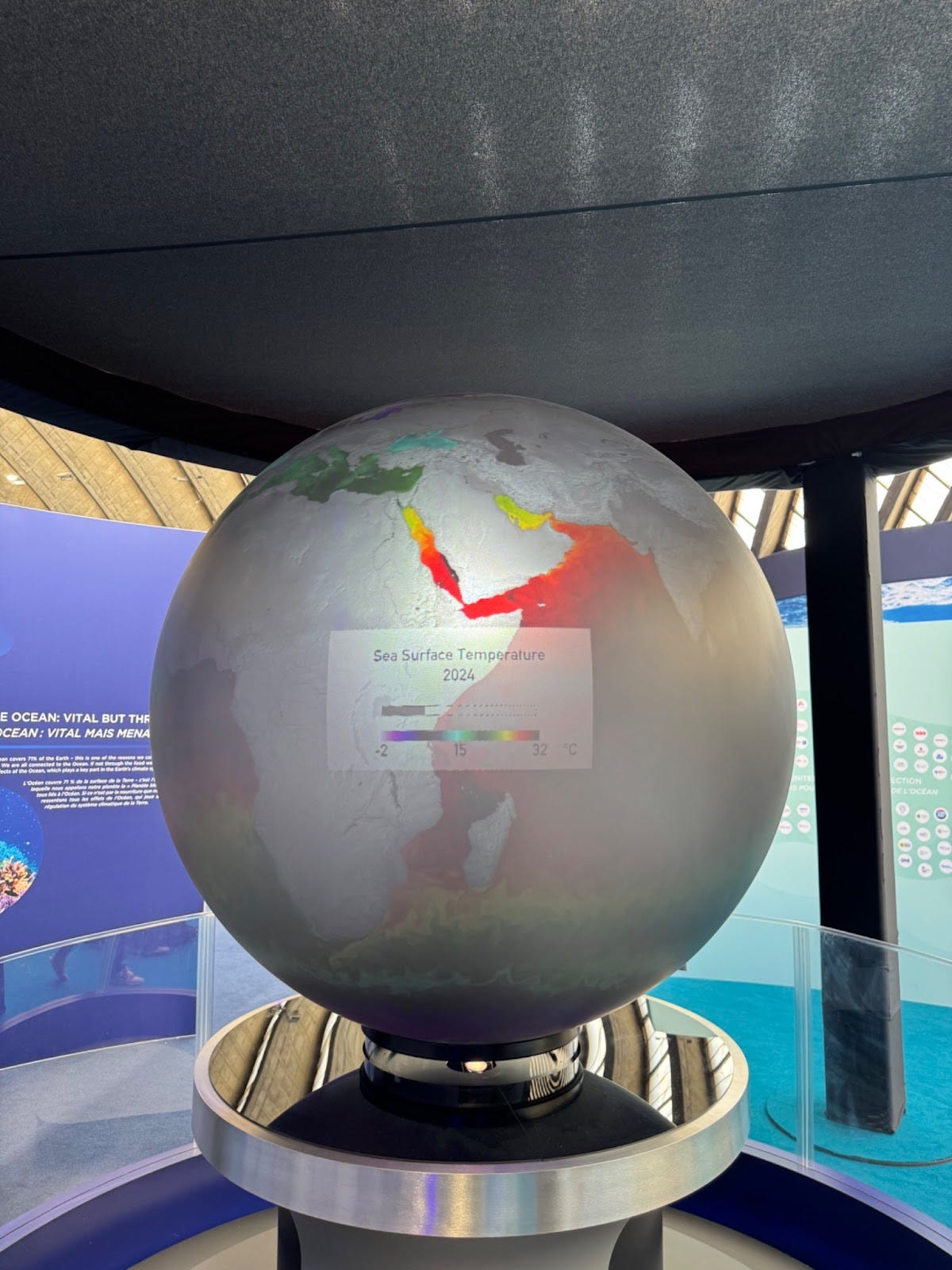
From France’s ODATIS marine data infrastructure, to Germany’s citizen-diver temperature networks, to Spain’s octopus fishery forecasting via IBM (Individual-Based Models) — the picture is clear: Europe is building a distributed nervous system for the ocean.
Many of these initiatives use the same principles that underpin DeHealth: interoperability, FAIR data standards, edge AI, and a shift from reactive to predictive strategy.
A Story That Touched Us: Sea Turtle CC32
On May 17, just weeks before the conference, a 62 kg loggerhead turtle (Caretta caretta) was severely injured by a boat propeller off the coast of Nice. Rescued by local firefighters and the marine wildlife group Émergence, the turtle — later named CC32 (the 32nd saved by the organization) — underwent a complex surgery to repair its shell and spine.
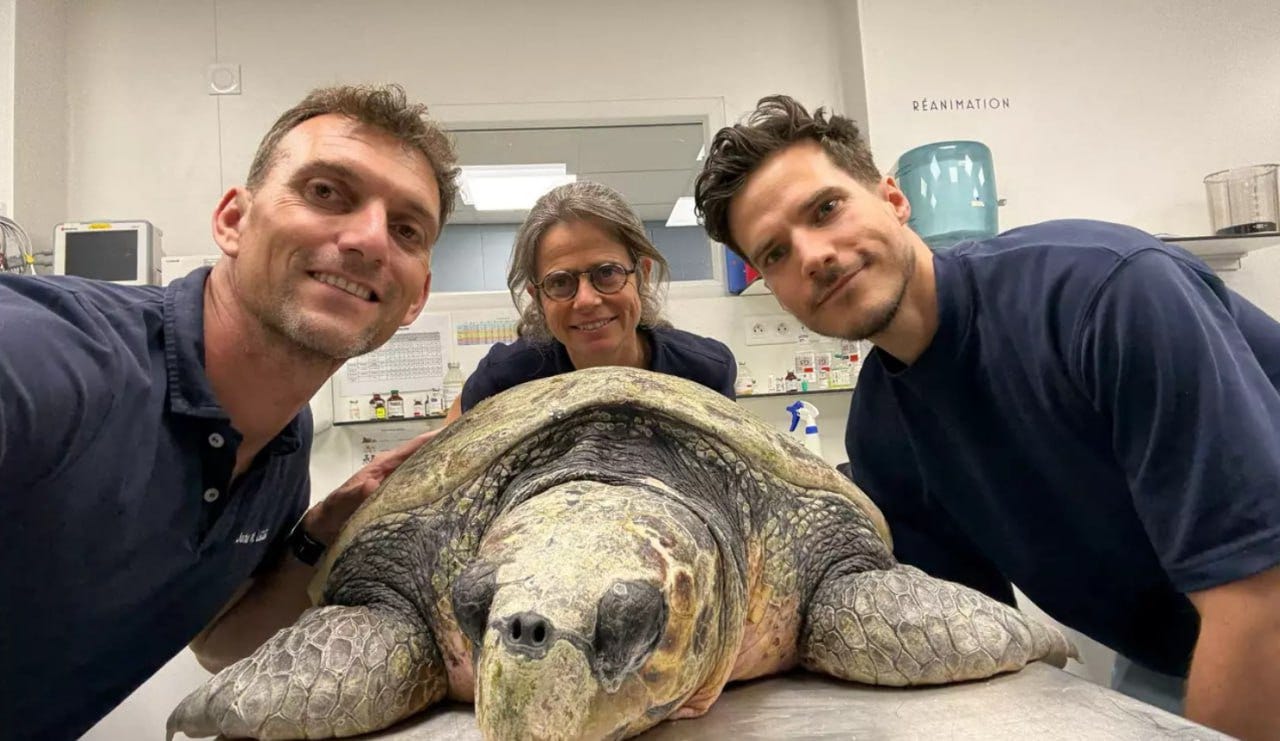
Later, it expelled fragments of plastic, a tragic reminder that marine trauma today is not just mechanical, but chemical.
Dr. Marc Leclerc, who operated on CC32, later spoke during World Environment Day:
“This turtle is a metaphor. A living being harmed by our economy, rescued by science, and now given a second chance.”
The story of CC32 wasn’t part of any keynote, but it struck DeHealth’s founders more deeply than any official session. It reflected everything the company stands for: real lives, silent suffering, data-informed rescue, and the potential for healing — if we act.
BEFF Monaco: Where Capital Meets Ecology
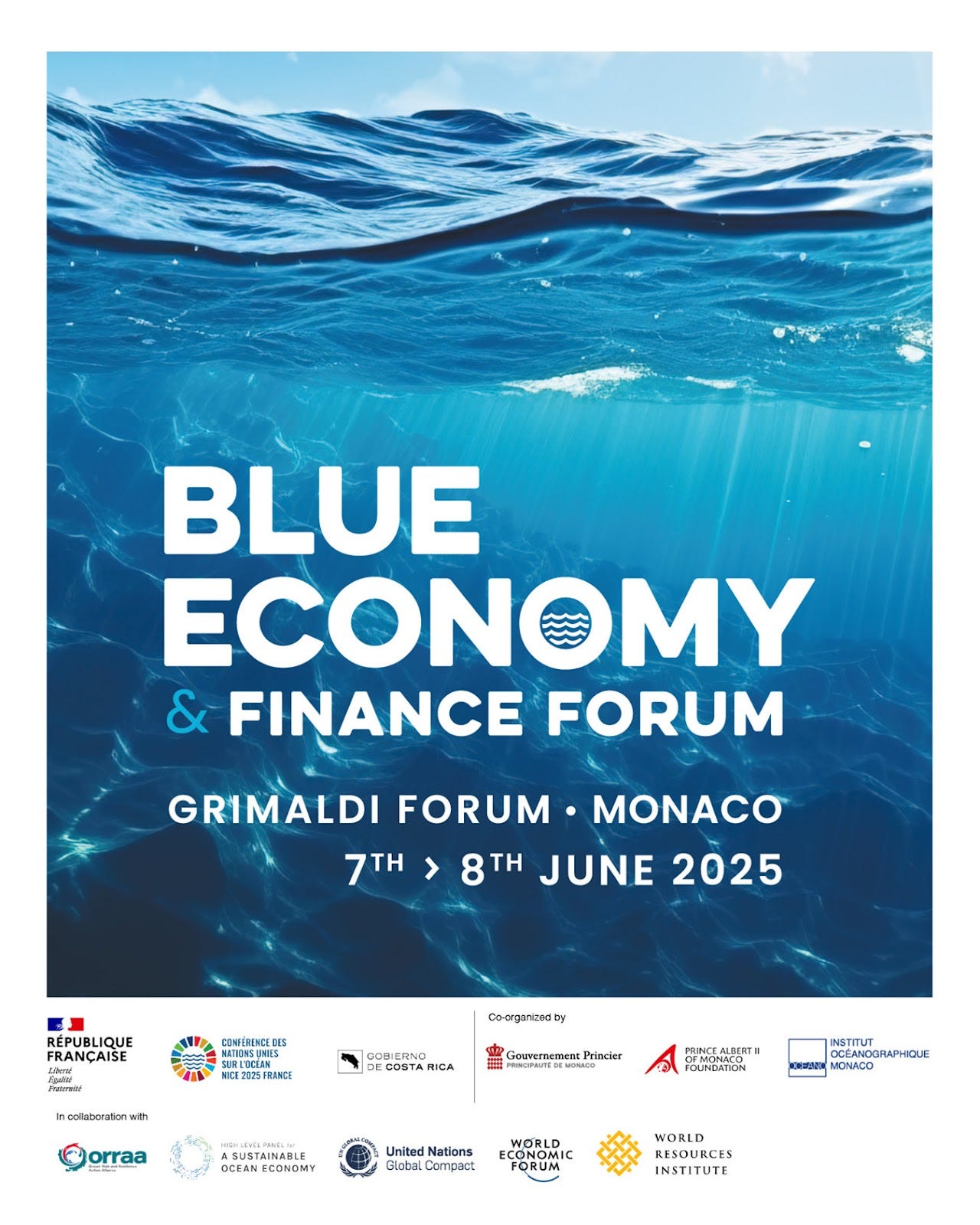
Held in the Grimaldi Forum, the Blue Economy & Finance Forum focused on one urgent truth: a healthy ocean needs investment. Today, global ocean-related financing stands at around $25 billion/year. Experts at BEFF called for scaling this to $175 billion/year to meet SDG14 and climate goals.
Prince Albert II of Monaco closed the forum alongside Emmanuel Macron and Costa Rican President Rodrigo Chaves. In his speech, Prince Albert called for an economy that regenerates the planet rather than extracts from it:
“Let the ocean no longer be the victim of our ambitions, but the source of our solutions.”
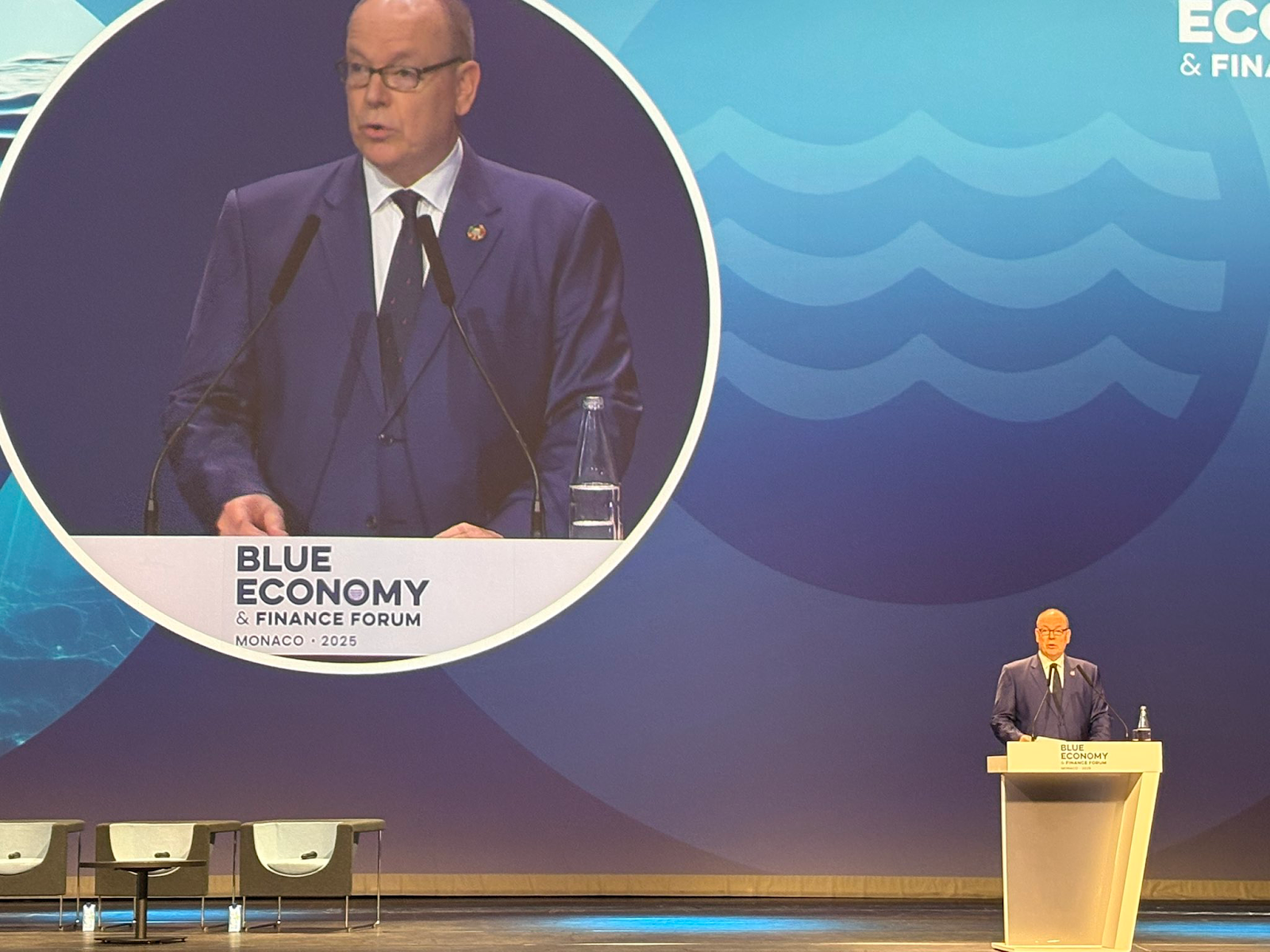
During a private diplomatic session, Macron presented Prince Albert with three symbolic gifts:
- A newly named undersea mountain in the Indian Ocean, now officially called Seamount Albert II
- A rare 1880 edition of Jules Verne’s Voyages Extraordinaires
- An exclusive Rafael Nadal racquet marking the Prince’s sports legacy
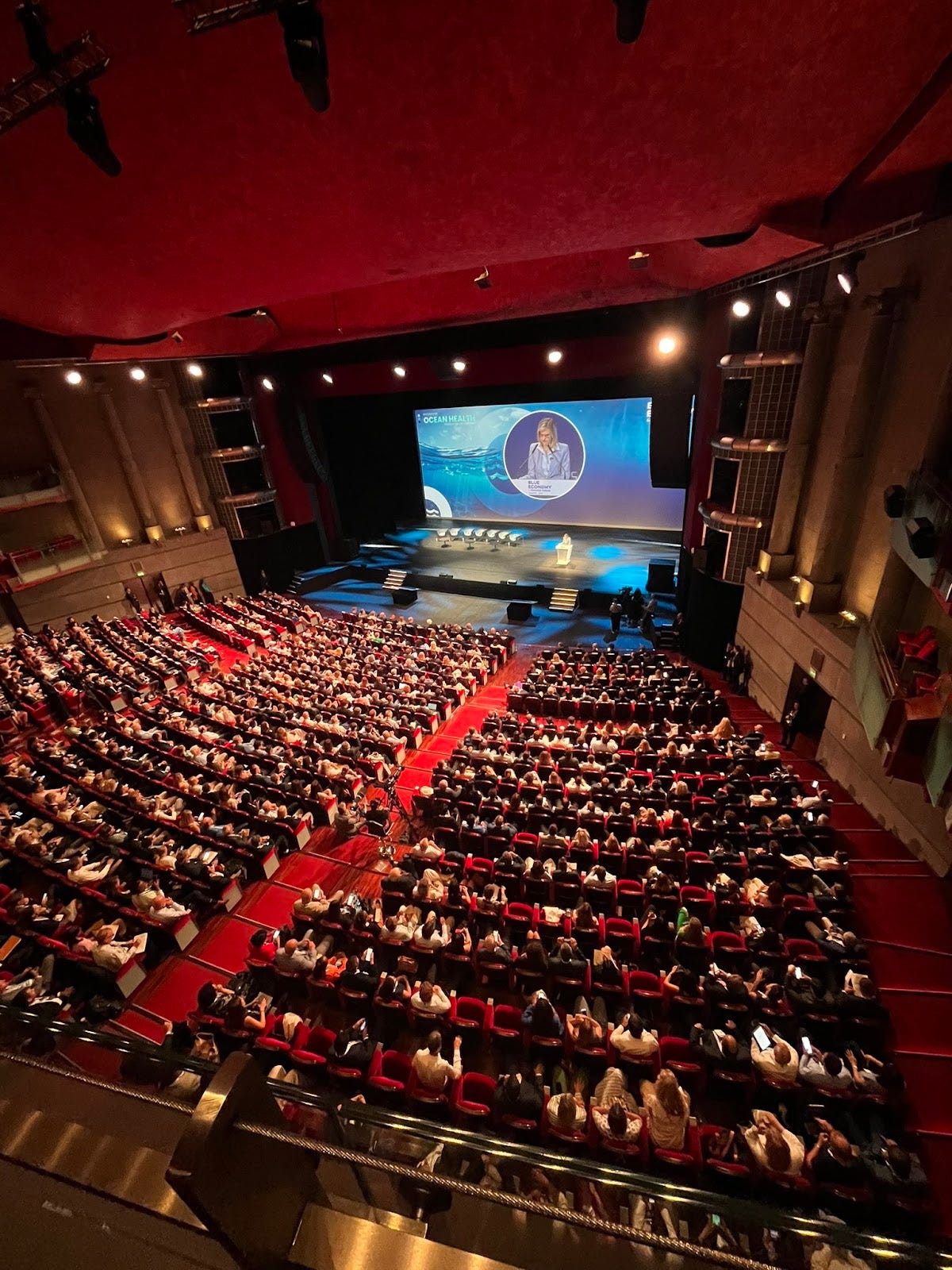
These weren’t just souvenirs. They were messages: of continuity, exploration, and shared purpose.
What DeHealth Showed the World
DeHealth didn’t come to UNOC-3 or BEFF with banners. The founders came to listen, to learn, and to connect dots that others might not yet see.
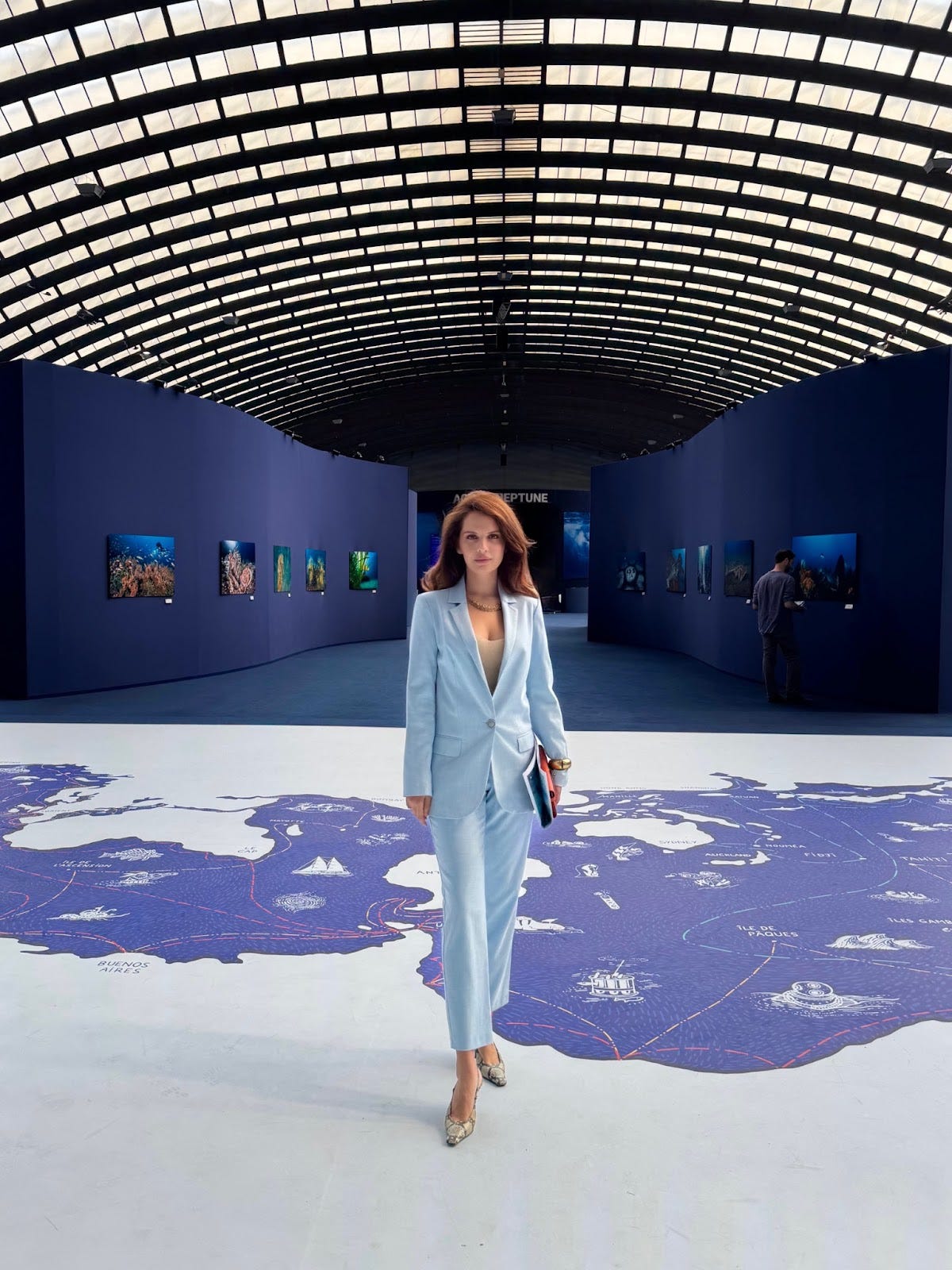
Their message was subtle, but powerful: you can’t solve the planet’s health crisis without solving the data crisis. And that crisis spans humans and nature alike.
In upcoming DeHealth releases, the team will:
- Launch climate-linked health reporting modules inside the DeHealth app
- Integrate environmental data (air, water, UV, noise) into diagnostics
- Partner with ocean research labs for coastal public health early-warning pilots
- Advocate for One Health governance linking biodiversity and bioinformatics
Because human resilience depends on planetary resilience.
Final Thoughts: A Call to Collaborate
At UNOC-3, the world mobilized to protect oceans. At BEFF, capital aligned with ecological urgency. And at every step, DeHealth stood for a deeper truth:
Health is not a hospital. It’s a system. And that system lives within the biosphere.
From loggerhead turtles to lithium runoff, from mangrove restoration to mood disorders — health is everywhere. And so must be the infrastructure that protects it.
DeHealth invites researchers, governments, investors, and nonprofits to co-create a new frontier: one where medical AI meets environmental intelligence. Where diagnosis meets prediction. Where ocean meets organism.
P.s.
Quotes from BEFF 2025 (Monaco) and UNOC-3 (Nice):
👑 Prince Albert II of Monaco:
“Only by working together — governments, institutions, investors, scientists, and citizens — can we build a regenerative blue economy that rises to the challenges of our time.”
“Let the ocean no longer be the victim of our ambitions, but the source of our solutions.”
🇫🇷 Emmanuel Macron (President of France):
“The ocean is not only our past — it is our future. France will lead in creating a global governance model for its protection.”
“Science must guide our decisions, finance must support it, and politics must act with courage.”
🇨🇷 Rodrigo Chaves Robles (President of Costa Rica):
“We are proud to co-host this summit and to advocate for ambitious ocean action rooted in equity, science, and solidarity.”
🇪🇺 Ursula von der Leyen (President of the European Commission):
“The EU is committed to turning the tide. With Horizon Europe, Mission Restore our Ocean, and the Digital Ocean Twin — we are scaling ambition with action.”
“We cannot protect what we don’t understand. And we cannot manage what we cannot measure.”
— Peter Thomson, UN Special Envoy for the Ocean
“Ocean science is not a luxury — it is a necessity for survival.”
— Emma Navarro, Deputy Director General, DG MARE, European Commission
“Digital ocean twins can help us forecast crises before they happen. We need to fund and scale them.”
— Vincent Doumeizel, UN Global Compact